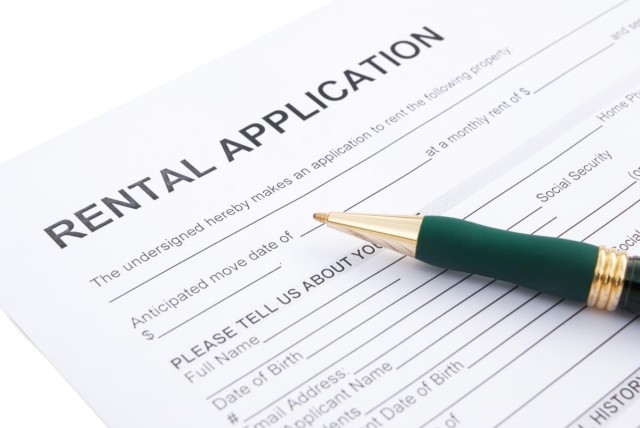Eviction is a word that both landlords and renters hope to never hear. Unfortunately, life can be unpredictable, making evictions a reality. For renters, evictions put their housing, public record, and finances in jeopardy. If you find yourself facing an eviction, it’s essential for you to understand your rights and the basic laws of eviction. Understanding the process and laws of eviction is the first step in getting through these tough times, so you can make sure your rights aren’t being violated and that the process is following your state laws.
Eviction process
The eviction process is a legal process. As a renter, it’s crucial to understand how an eviction is supposed to proceed, and make sure that your landlord is following the law. Specific eviction laws vary from state to state, but the bones of the laws and the process is pretty standard across the country. That being said, it’s essential to familiarize yourself on your state’s specific eviction laws.
Lease violation
In every state, the eviction process starts with a violation. In all 50 states, you can be evicted for three things: failing to comply with a term in your lease, failure to pay rent, and illegal activity. Tenants who have received an eviction notice should familiarize themselves on the basics of eviction to understand why they are in violation.
If the issue is failure to pay rent, know that you’re not alone. Many state and local governments have programs to provide rental assistance. The U.S. Department of the Treasury has compiled a list of resources for Emergency Rental Assistance.
Notice to vacate or correct the violation
In most states, landlords are required to present their tenant with a written notice before they can proceed with the eviction. The majority of landlords will provide a written notice on your door and through certified mail. The notice will outline the issue and then give an amount of time the tenant has to fix the problem or move out before the eviction process proceeds. In some instances, no notice is required to terminate a lease. For example, in Delaware, a landlord can immediately terminate a lease if the tenant causes or threatens to cause irreparable harm to another person in the unit or causes or threatens to cause irreparable harm to the unit or the surrounding property.
States also vary in the amount of time required for rectification. Some states like Alabama and California give tenants the same amount of time for each reason for eviction. Other states like Delaware require a five-day period if the eviction reason is nonpayment, but 7 days if it is due to a violation of a lease term. If you find yourself with an eviction notice, make sure your landlord is following your state’s law for rectification time.
If you correct the issue before the deadline, your landlord must halt the eviction. This is best case scenario for both parties. If you go to court and lose, you not only have whatever debt you owe your landlord but all the legal fees from having the case go to court. If you just move out, your landlord will sell whatever debt you owe to a collections agency, and you can work on paying your debt.
Your landlord files with the court
If you don’t fix the situation in the time allotted or move out, the next step your landlord takes is filing the eviction with the court. Once your landlord files the eviction, an eviction hearing will be scheduled, and you will be sent a court summons. Some states won’t schedule the hearing until the tenant responds to the summons. In this case, if the tenant doesn’t respond by the time stated on the court summons, the case will end in a default judgment in favor of the landlord.
Even if your state doesn’t require you to respond to the summons, the case could still end in a default judgment if you fail to show up for a hearing. Even if you are at fault, it’s best to show up to the hearing and state your case. It’s not unheard of for a judge to reduce a debt. If you feel that you have been wrongfully evicted, it’s imperative to consult with a lawyer and show up in court to state your case.
The hearing
Rarely do evictions make it to this step because most tenants don’t show up to court, or the eviction is handled outside of the courtroom through mediation. The hearing is where the court decides whether or not you should be evicted. Some states require two hearings. One hearing for the judgement and another to issue the court order, but many states try to finish the process with one hearing.
If it’s a case of wrongful eviction, it might take more than one hearing to have enough time to present evidence. Depending on the case, this step can get complex, and a jury trial might even be necessary. It’s essential to consult with a lawyer before going to court.
Ruling
The ruling is the outcome of the hearing or trial. If the landlord wins the case, the tenant will be ordered to move out of the property and state any money owed to the landlord (some states call this a writ of possession or eviction). Again, check your state’s laws because some states have a specified time that the writ must be issued. Some states don’t issue the writ until the deadline for an appeal has passed.
In the case that the judge rules in favor of the tenant, the tenant can remain on the property and will most likely be awarded compensation.
Eviction
When the court order to move out (or writ) is issued, you have a deadline to vacate the property. If you don’t leave the property by the deadline, law enforcement will remove you. If this happens and your belongings are still there, they will be removed at the discretion of your landlord under the watch of law enforcement. In a case like this, states like Georgia don’t require landlords to store your belongings for an amount of time. If you are ordered to leave the property after an eviction, it’s best to leave before the deadline to avoid any extra stress.
Can you stop the eviction process?
Once the eviction process gets started, it’s not simple to stop, but it’s not impossible. The best way to stop the eviction is during the notice to quit/vacate stage. If you pay or move out, then the eviction will not proceed. Understandably, finding new housing or collecting funds to pay rent when some states only allow a few days might be difficult.
The most common way to stop an eviction is for you and your landlord to reach some type of settlement agreement, also known as landlord-tenant mediation. Evictions are a lengthy and expensive process that most landlords want to avoid, so reach out to your landlord if you find yourself with an eviction notice. They are often willing to negotiate with you to avoid having to file an eviction. It’s also best to seek legal counsel so you have help creating a fair settlement agreement.
Wrongful eviction
Not all evictions are just. If you find yourself with an eviction notice that doesn’t seem right, reach out for legal advice before you take any steps. The U.S. Department of Housing and Urban Development offers resources including free legal assistance. Just click on your state to get to the necessary links.
One of the best ways to prepare is to keep detailed records. For example, if your landlord is evicting you for a damage you didn’t cause, evidence like maintenance request letters and dated pictures will be helpful in proving your case.
Remember, the Fair Housing Act protects you from discrimination on the basis of race, color, religion, sex (including sexual orientation and gender identity in some states), national origin, disability, and familial status. If you feel that the reason for your eviction is discriminatory, you can file a complaint through Fair Housing.
What to do if you’ve been evicted
If you’ve been evicted there are plenty of ways to rectify the situation and get back on your feet.
First, if you can’t move out of the property in the time allotted after the eviction, ask your lawyer about a “stay of execution.” This varies by state and case, but in a basic sense, a stay of execution will delay the eviction, giving you more time to look for housing. If you are struggling to find new housing, the Consumer Financial Protection Bureau provides resources for finding housing counselors in your area.
After you get out of your old rental, you still have ways to rent again after an eviction. It might take a little work and time, but getting your credit score up and re-building your rental history is attainable.
An eviction isn’t something that any renter wants to go through, but it’s crucial to understand your rights and the laws of eviction. Knowing the process and making sure your rights aren’t being violated is essential for getting through the eviction and moving on to better days!






